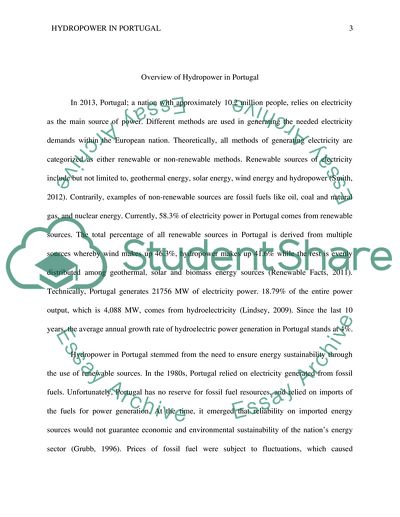Cite this document
(“Hydropower in Portugal Assignment Example | Topics and Well Written Essays - 1500 words”, n.d.)
Hydropower in Portugal Assignment Example | Topics and Well Written Essays - 1500 words. Retrieved from https://studentshare.org/geography/1665721-hydropower-in-portugal
Hydropower in Portugal Assignment Example | Topics and Well Written Essays - 1500 words. Retrieved from https://studentshare.org/geography/1665721-hydropower-in-portugal
(Hydropower in Portugal Assignment Example | Topics and Well Written Essays - 1500 Words)
Hydropower in Portugal Assignment Example | Topics and Well Written Essays - 1500 Words. https://studentshare.org/geography/1665721-hydropower-in-portugal.
Hydropower in Portugal Assignment Example | Topics and Well Written Essays - 1500 Words. https://studentshare.org/geography/1665721-hydropower-in-portugal.
“Hydropower in Portugal Assignment Example | Topics and Well Written Essays - 1500 Words”, n.d. https://studentshare.org/geography/1665721-hydropower-in-portugal.


